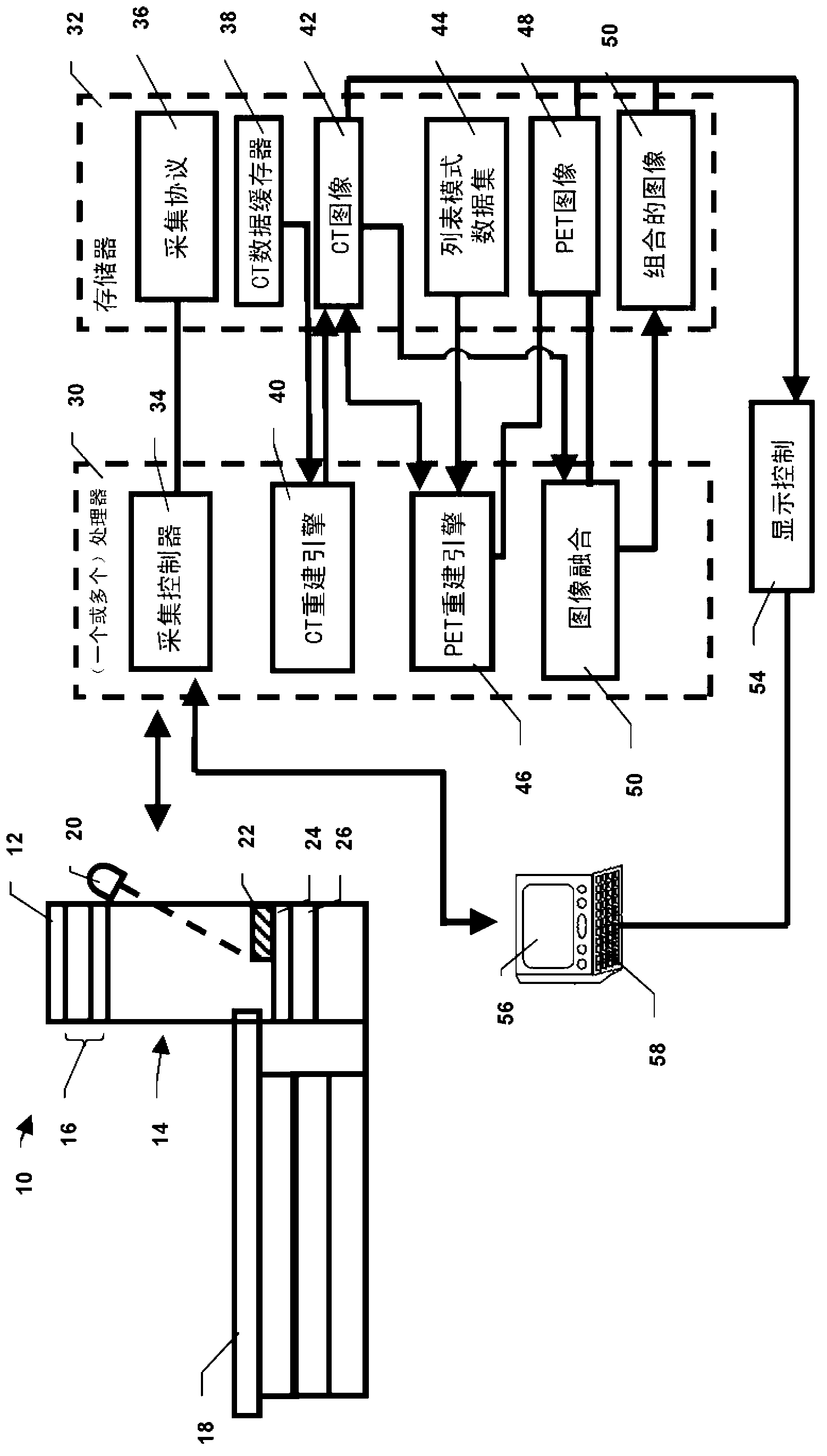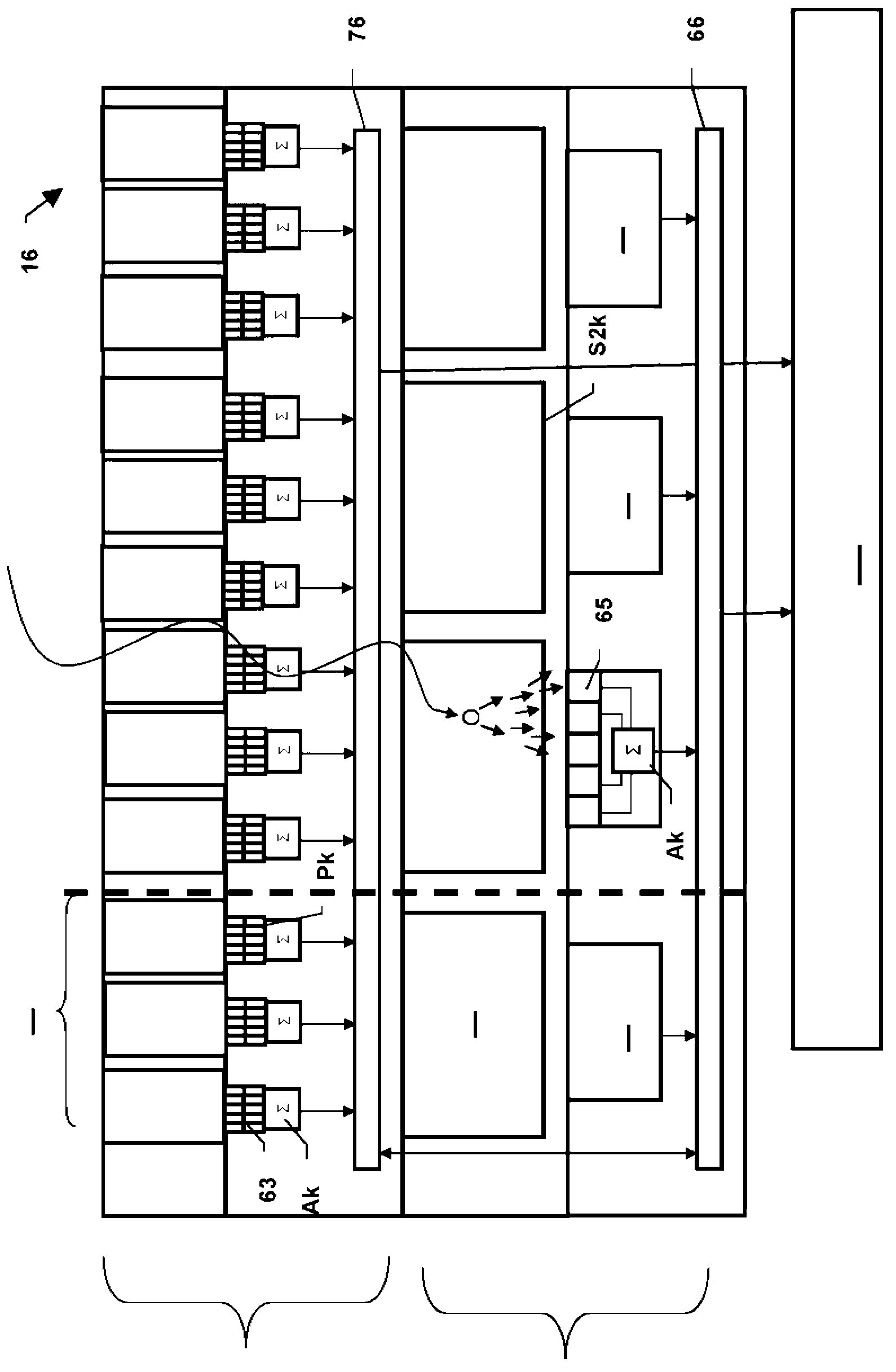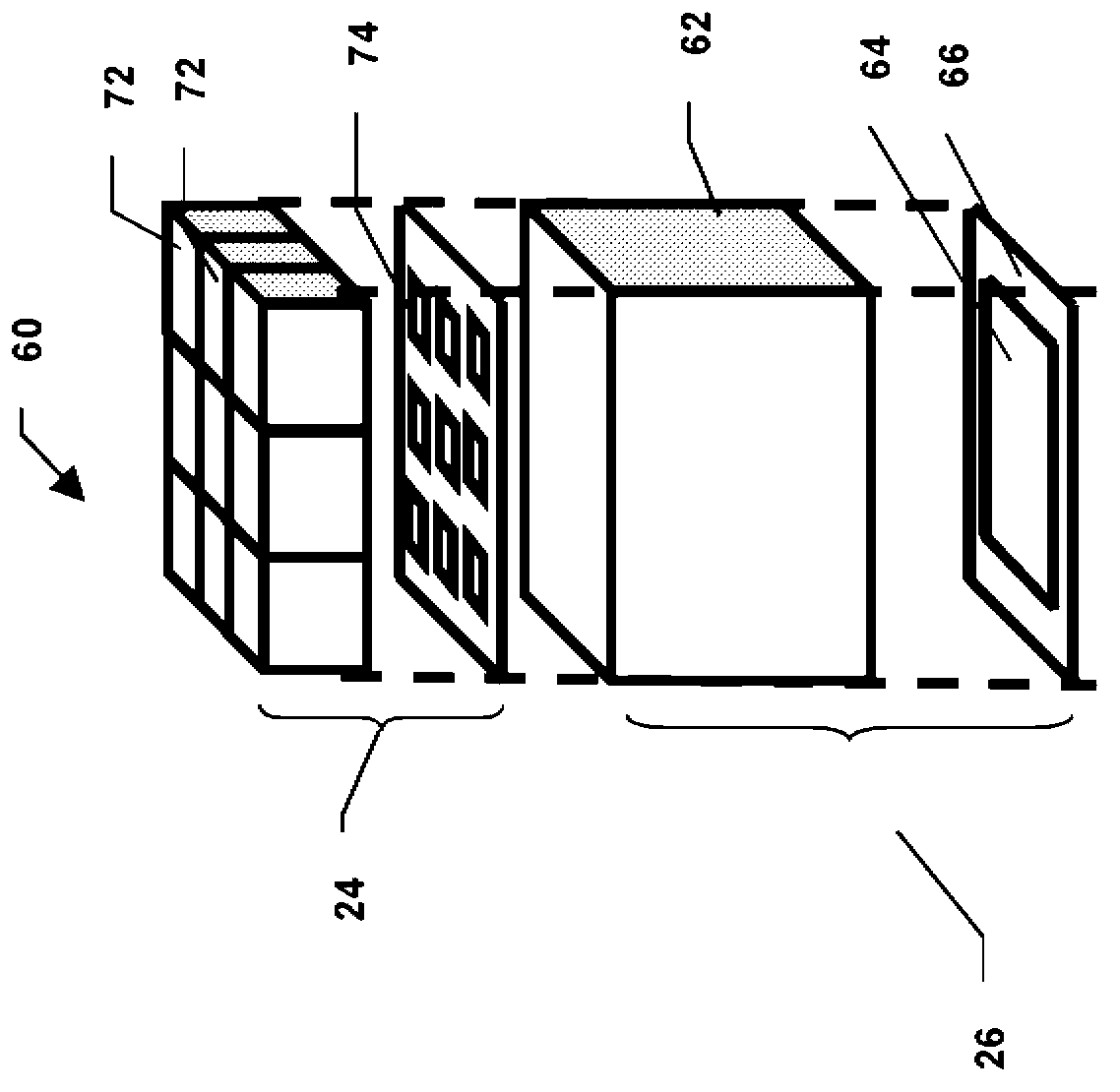PET-CT system with single detector
A technology of detectors and radiation detectors, applied in instruments, measuring devices, scientific instruments, etc., can solve problems such as registration errors, and achieve the effect of reducing costs and simplifying registration
- Summary
- Abstract
- Description
- Claims
- Application Information
AI Technical Summary
Problems solved by technology
Method used
Image
Examples
Embodiment Construction
[0021] refer to figure 1 , the hybrid imaging system 10 includes a single gantry 12 that defines an examination region 14 therein. A ring of radiation detectors is disposed around the examination area, said ring of radiation detectors detecting radiation emitted by a patient or other object on the patient support 18 or passing through the patient support 18 as the patient support 18 extends into the examination area radiation on patients or other objects. exist figure 1 In an embodiment of the present invention, a transmitted radiation source 20 such as an X-ray tube and an anti-scatter grid (also called a scatter reject collimator) 22 are arranged to rotate around the examination region 14 . In one embodiment, the anti-scatter grid is movable from the examination region to acquire functional or emission data (eg, nuclear data) during a PET, SPECT, or other nuclear scan. The anti-scatter grid is a set of vanes, each of which is aligned with the focal point of the x-ray sour...
PUM
 Login to View More
Login to View More Abstract
Description
Claims
Application Information
 Login to View More
Login to View More - R&D
- Intellectual Property
- Life Sciences
- Materials
- Tech Scout
- Unparalleled Data Quality
- Higher Quality Content
- 60% Fewer Hallucinations
Browse by: Latest US Patents, China's latest patents, Technical Efficacy Thesaurus, Application Domain, Technology Topic, Popular Technical Reports.
© 2025 PatSnap. All rights reserved.Legal|Privacy policy|Modern Slavery Act Transparency Statement|Sitemap|About US| Contact US: help@patsnap.com



